Since his debut feature Eraserhead became an overnight sensation on the midnight movie circuit, many of David Lynch’s films have been critically acclaimed instant classics. Blue Velvet and Mulholland Drive are often included on lists of the greatest movies ever made. His underappreciated hits are usually venerated by receiving positive reviews, like Wild at Heart, or achieved cult classic status, like Dune.
But Lynch’s 1997 neo-noir Lost Highway was met with mixed reviews from critics and hasn’t become the cult hit it deserves to be. Lost Highway may not be Lynch’s best film, or even close, but it is his most underrated work.
10 It Has Some Of Lynch’s Most Disturbing Imagery
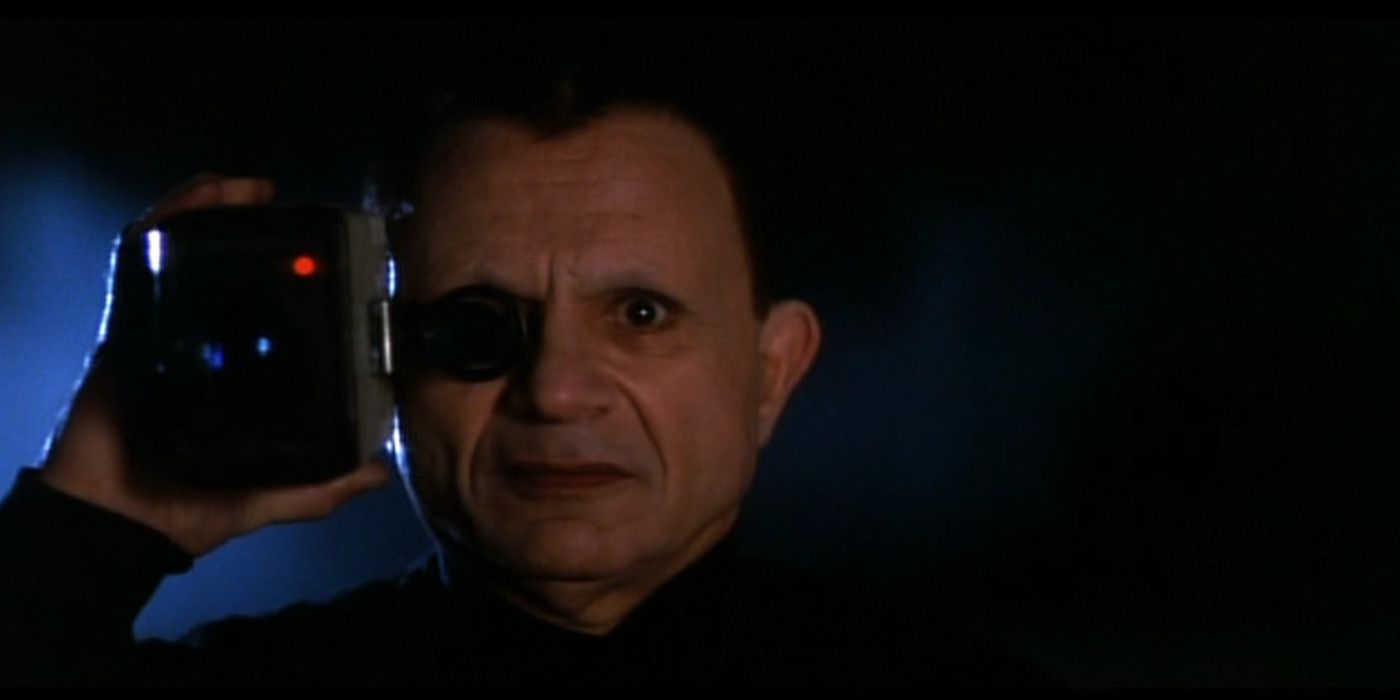
One of the hallmarks of David Lynch’s style is disturbing imagery, like the alien-like baby featured prominently throughout Eraserhead or the severed ear that opens Blue Velvet.
From the voyeuristic tapes that kick things off to Fred Madison’s trippy dream sequences, Lost Highway has some of the most unsettling images of Lynch’s career.
9 Bill Pullman Makes For A Compelling Lead
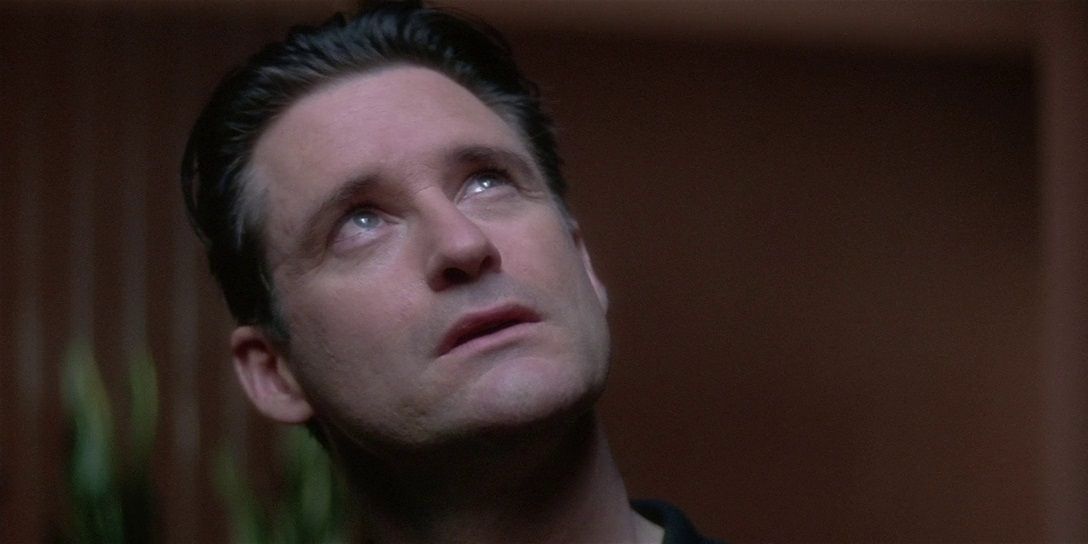
Like a lot of David Lynch’s protagonists — Henry Spencer, Jeffrey Beaumont, Alvin Straight, etc. — Fred Madison is introduced as an everyman. He’s far from an everyman by the end of the movie, though, and Bill Pullman plays this surreal journey brilliantly.
Pullman gives a compelling turn in Lost Highway. He has the chops to convey both the everyman qualities of the character in the movie’s first half and the out-and-out weirdness the story explores in its second half.
8 The Script Has An Intriguing Self-Reflexive Structure
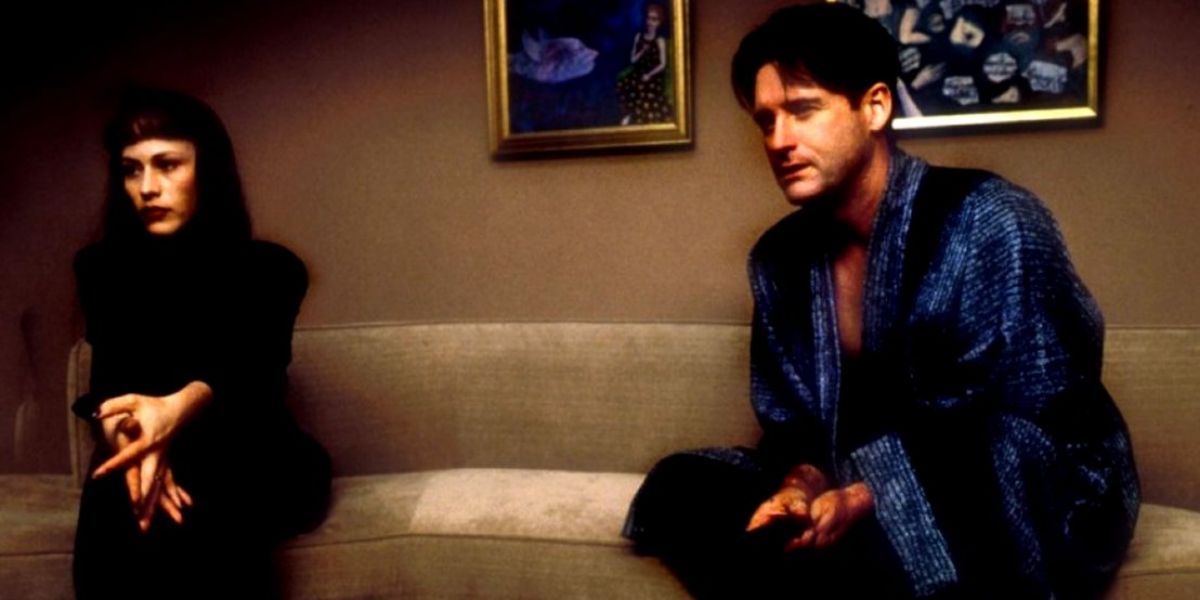
David Lynch co-wrote the screenplay for Lost Highway with Barry Gifford, whose novel Wild at Heart he’d previously adapted into a delightfully bizarre road movie with Nicolas Cage and Laura Dern.
Their script has a self-reflexive structure that’s fascinating. It script acts like a mirror looping story events around, facing characters with the consequences of future actions and informing how those actions come to take place. It means that there are ultimately no definitive conclusions, but it makes for a heck of a ride.
7 It’s The Closest Lynch Has Come To Making A Straight Noir

The influence of film noir can be seen all over Lynch’s work, from Mulholland Drive’s parallels with Sunset Boulevard to the ethically questionable protagonist of Blue Velvet. But Lost Highway is the closest Lynch has come to making a full-on noir. A jazz musician being wrongfully accused (or so it seems) of his wife’s murder is a plot ripped straight from an old noir.
Of course, it has plenty of Lynch’s surrealness layered over it — he transforms into a different person on death row — but it’s pulpier than Lynch’s usual crime stories. With flashy visuals and Bowie on the soundtrack, it’s like a pop-noir.
6 Patricia Arquette Plays A Unique Kind Of Femme Fatale
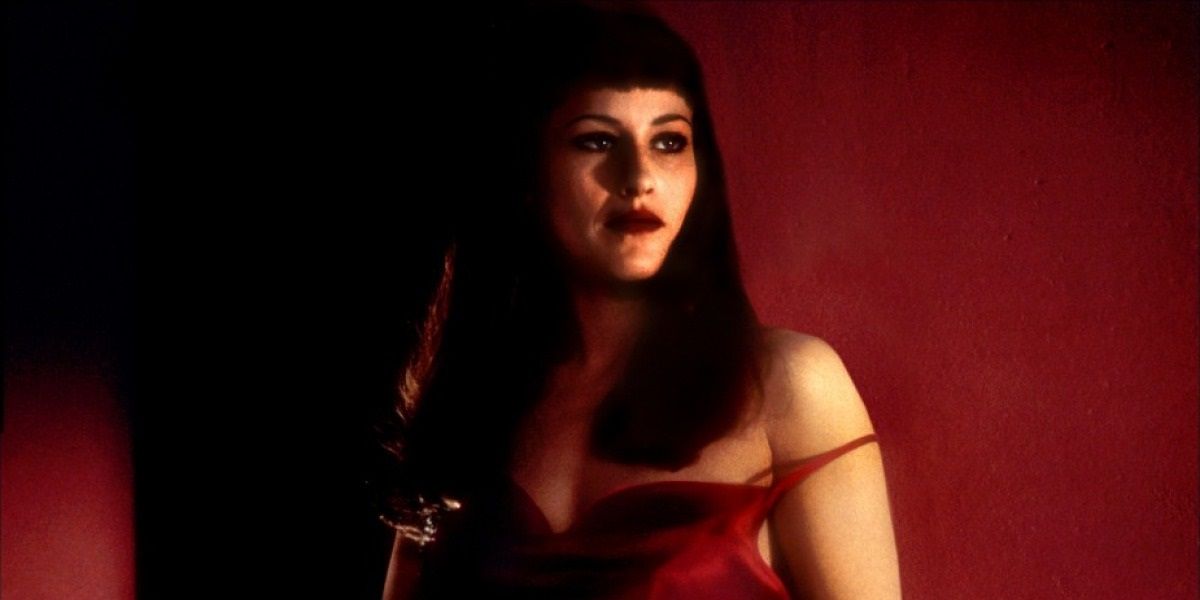
Like any great noir, Lost Highway has a captivating femme fatale, played by Patricia Arquette. But her character (or characters) is a femme fatale like no other.
Initially, she’s introduced as Fred Madison’s wife, Renee. She’s murdered and he’s arrested for it. Then, when Fred turns into a mechanic named Pete in his cell, Pete is released and he falls for Alice, also played by Arquette. She begins an affair with him, despite already being the mistress of gangster Mr. Eddy. She’s a quintessential femme fatale — but she’s also, somehow, two people.
5 The Mystery Man Is One Of Lynch’s Most Surreal Creations

From Killer B.O.B. in Twin Peaks to The Cowboy in Mulholland Drive, David Lynch has graced audiences with a lot of surreal supernatural characters. One of the craziest of the bunch is the Mystery Man from Lost Highway.
After appearing to Fred in a couple of dreams, the Mystery Man approaches him at a party and tells him to call his own house and speak to the guy who’s there. He continues to crop up throughout the movie, and he’s always an eccentric delight.
4 It Kicked Off Lynch’s L.A. Trilogy
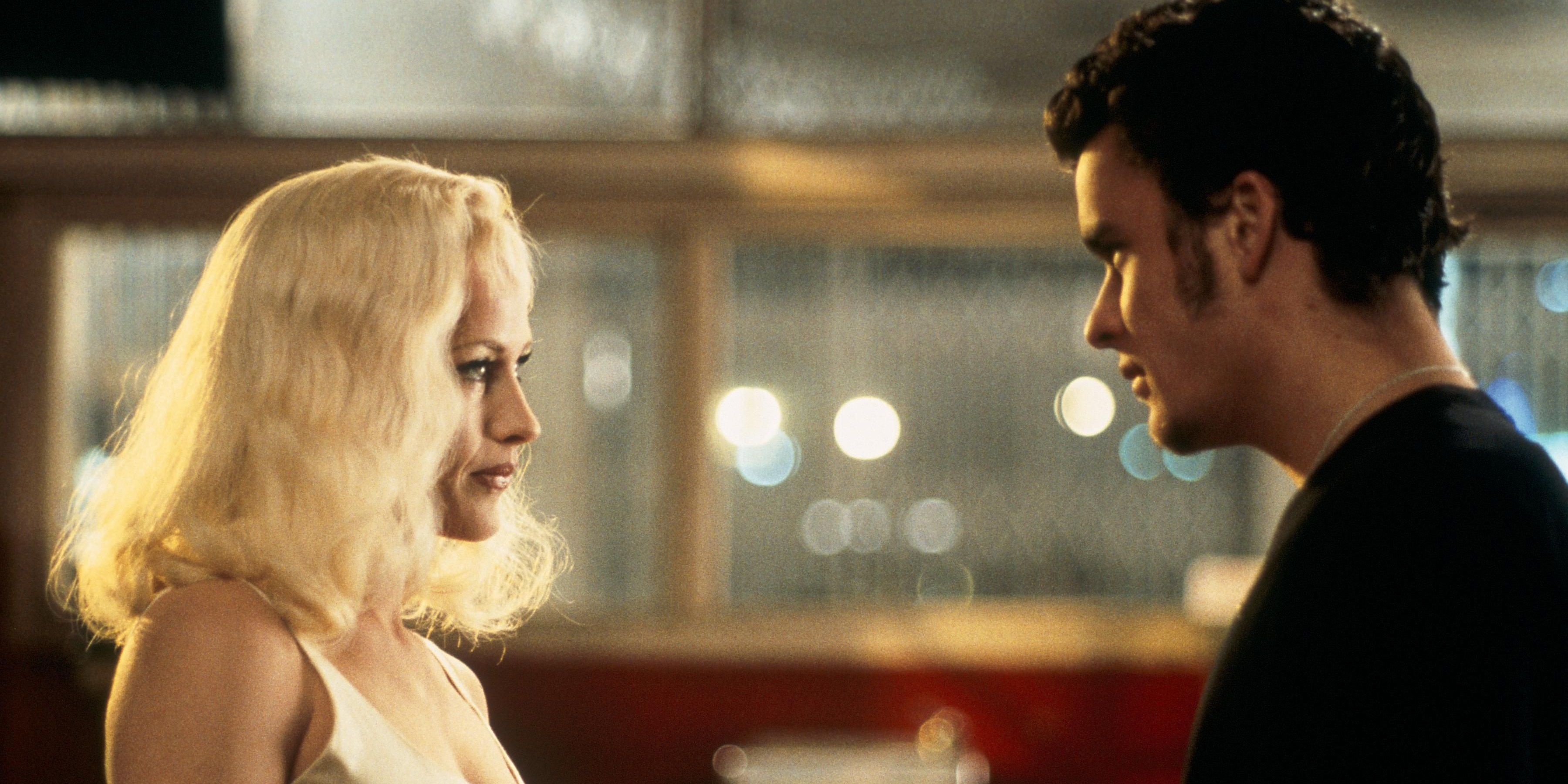
Lost Highway was David Lynch’s first of three consecutive films set in Los Angeles. It was followed by Mulholland Drive and Inland Empire, and they’re collectively considered to be Lynch’s unofficial L.A. trilogy.
As the movie that kicked off this trilogy, Lost Highway gave audiences their first look at Lynch’s unique cinematic vision of Los Angeles before the more famous portrait seen in Mulholland Drive (which focused more on the film industry side of the city).
3 The Midpoint Twist Avoids The Usual Second-Act Problems
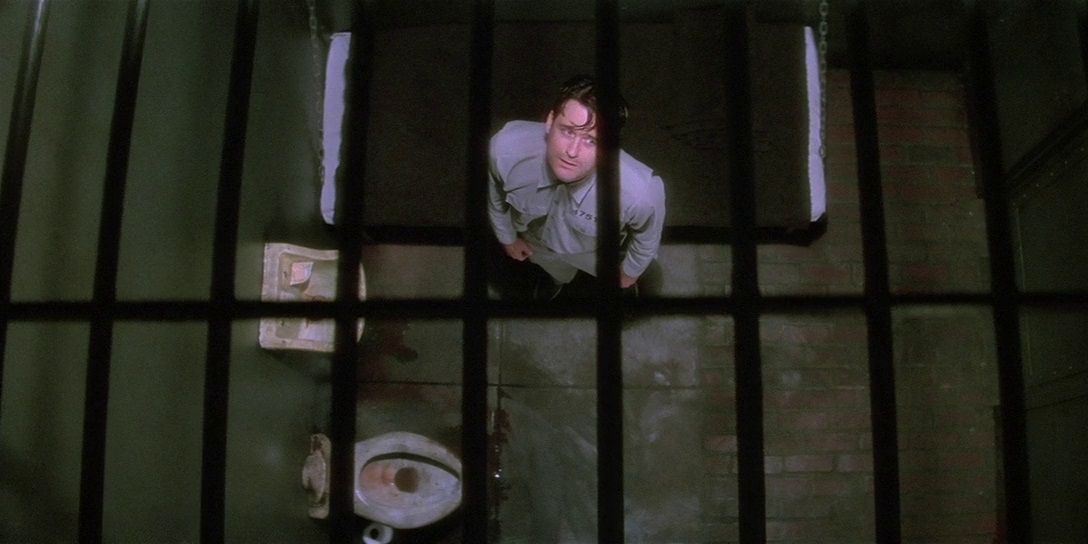
Most movies suffer from second-act problems because the function of the second act is to find an entertaining way to deliver all the boring stuff that gets the audience from the intriguing setups of the first act to the satisfying payoffs of the third act. Thanks to its baffling midpoint twist, in which the protagonist randomly turns into a whole new person, Lost Highway avoids those problems.
Just when the second act is starting to drag as most second acts do, Lynch completely changes the game and opens up all kinds of new questions to keep the audience interested.
2 Robert Loggia Gives An Unforgettable Turn As The Villain
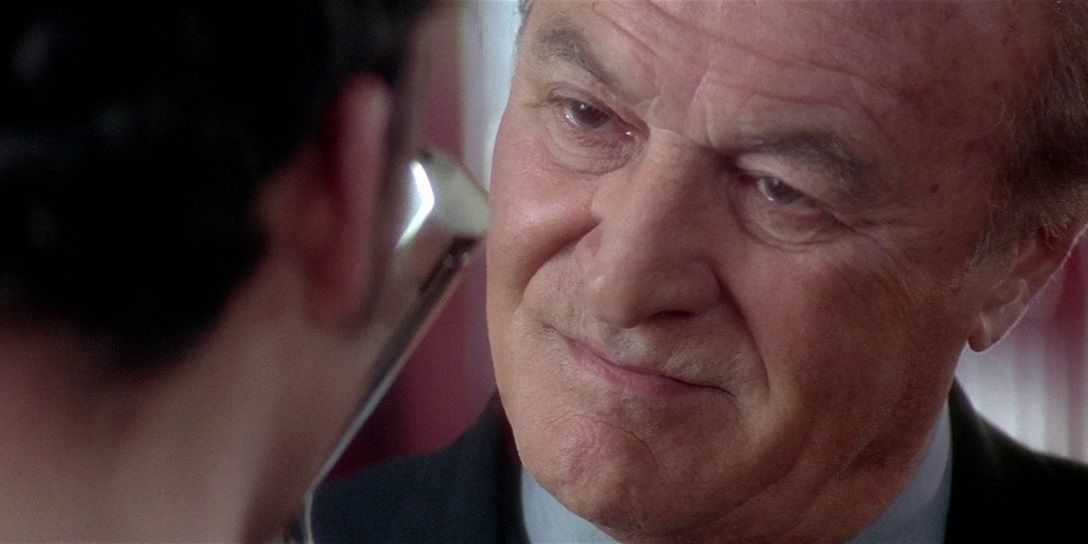
Robert Loggia plays the villain in Lost Highway, a gangster named Mr. Eddy, as well as Dick Laurent, whose death is central to the movie’s many mysteries. Mr. Eddy is a much more fun and cartoonish villain than the disturbing Frank Booth from Blue Velvet.
In scenes like Mr. Eddy’s confrontation with the tailgater, Loggia walks a fine line between the absurdity of the situation and the evil of his character.
1 The “Dead End” Is Actually Genius
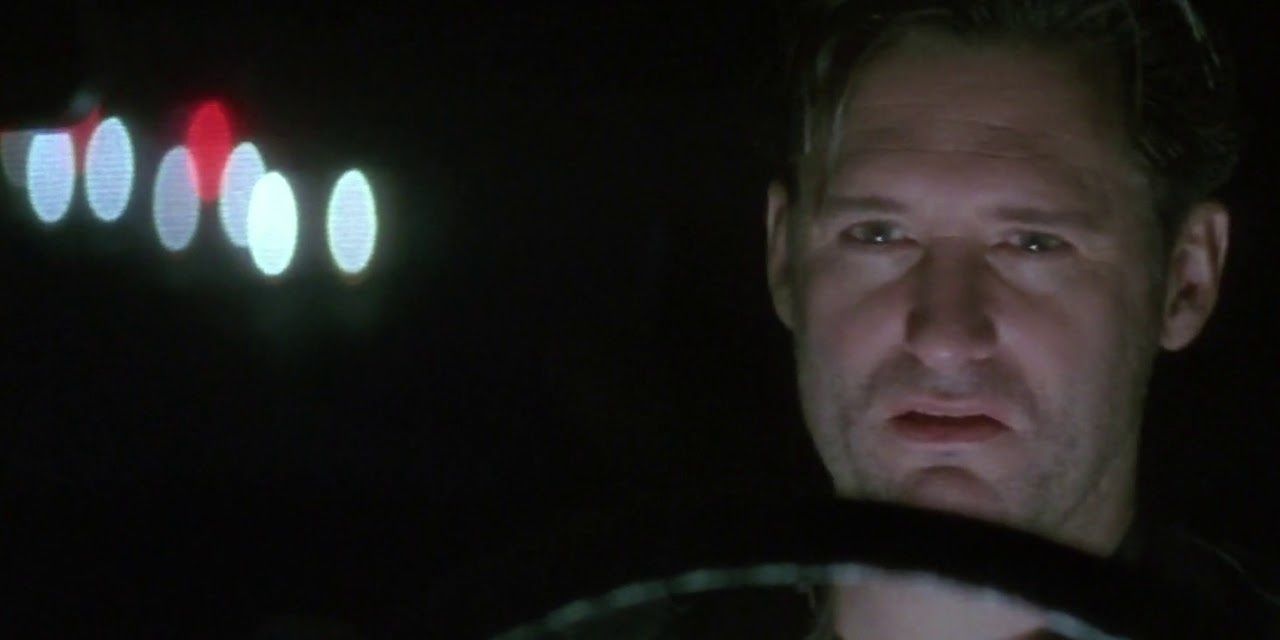
One of the most common criticisms levied at Lost Highway is that its self-reflexive storylines lead the movie to a dead end — but that’s the genius of it.
Watching the nonlinear mayhem of Lost Highway is like going on a rollercoaster. The movie leads the audience in and out of itself.
from ScreenRant - Feed https://ift.tt/37yK3uj






0 Comments
Please don't use vulgar comments and avoid discussion on Religious matters